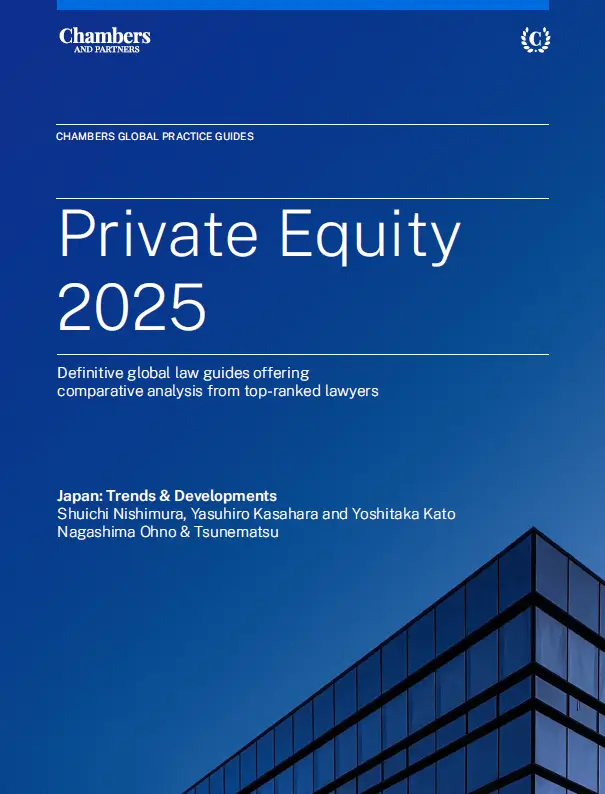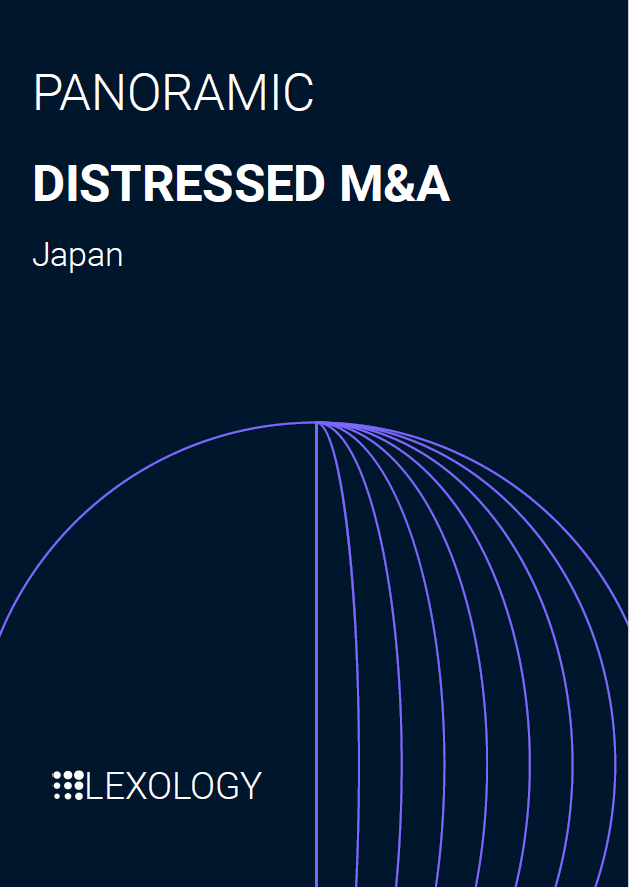
NO&T Capital Market Legal Update
This article is also available in Japanese.
In light of the recent deterioration of the market, many companies are looking for ways to reduce debt and increase capital to improve their financial condition. Common methods include public offerings of common shares or allocation of shares to a third party. In addition to these methods, companies may use Debt/Equity Swap (“DES”): transactions to convert existing debts into equity such as common shares or preferred shares.
This newsletter provides an overview of the use of DES by listed companies and the major points to be noted in the procedures required for DES in Japan.
Please note that the following content is not intended to be exhaustive; it is necessary to analyze the situation of each company individually.
A Debt/Equity Swap is a method by which creditors holding monetary claims against a debtor company exchange such claims for the company’s shares (common shares or preferred shares).
By executing a DES, the debtor company is able to reduce its debts and increase its capital, thereby improving its financial condition through the recovery of solvency.
As described above, a DES is a method for improving the financial condition of the debtor company. The benefits that accrue to the creditors from this method include (i) the possibility of collecting more funds in the future, via preferred dividends of the shares to be issued and sales of the shares, than would be available through debt waiver, and (ii) the possibility that the creditor may be able to exercise control of the debtor company by acquiring voting rights. (iii) In addition, in light of (i) and (ii) above, it is easy to explain that the creditor directors’ choice of DES was a rational business judgement.※1
There are two main approaches to DES under Japanese law.
Under the first approach, the creditor pays the debtor company cash and receives an allocation of shares from the debtor company. The debtor company then immediately repays its obligation to the creditor with this cash, thereby extinguishing its debts.
In the second approach, creditor contributes monetary claims in kind and is allocated shares by the debtor company.
In a DES, both common shares and preferred shares (class shares) are often issued. Class shares tend to prevail over common shares in terms of the dividends of surplus and the distribution of residual assets, and do not entail voting rights at the shareholders meeting. In addition, many class shares have a put option and are subject to call (acquisition clause), pursuant to which such shares will be exchanged for consideration of common shares or money. The shares issued depend on the characteristics of each case. The following is an overview of the individual terms and conditions of shares issued by DES.
The listing rules impose certain restrictions regarding voting rights. In addition, there are restrictions on the acquisition of voting rights of 5% or more under the Banking Act and the Antimonopoly Act where creditors are banks, and restrictions under the Foreign Exchange and Foreign Trade Act where creditors are foreign investors.※2
The dividends of shares issued in a DES generally prevail over the dividends of common shares. However, the terms and conditions of such shares are directly related to economic conditions and therefore vary widely; these are decided through negotiations between the parties concerned and coordination with other stakeholders (such as other creditors). In some cases, measures such as setting the starting date of the preferred dividends after a certain period of time has elapsed since the start of the corporate reconstruction plan may be adopted.
In addition, from the viewpoint of ensuring the possibility of paying preferred dividends to creditors, cumulative preferred shares—which provide that if dividends in a given period do not reach the prescribed preferred dividend amount, the amount of the deficiency accumulates and the amount accumulated from incomes in the following period will be preferentially paid—may be issued in some cases.
The preferred shares issued by a DES may be shares with a put option, which may be redeemed on demand of shareholders, and shares subject to call, which may be redeemed by the stock company upon the occurrence of a specified event. When these shares are redeemed, they are exchanged for common shares or money as consideration.
Granting the put option in consideration for common shares makes it easy for creditors to sell shares issued by a DES. On the other hand, by granting the acquisition clause in consideration for common shares, a debtor company can avoid the long-term existence of preferred shares by acquiring them.
A put option for monetary consideration has the advantage for creditors that they are able to recover their investment within the distributable amount, and debtor companies can prevent the dilution of common shares and the obstruction of the independence of management rights which occurs where common shares are used as consideration. The acquisition clause for monetary consideration allows the debtor company to prevent dilution of common shares and the obstruction of the independence of management rights.
When a listed company effects a DES, it is important to understand the outline of the procedures required by laws and regulations together with the grounds for such procedures. While detailed explanations are beyond the scope of this newsletter, the main points to note will be explained below.
The Companies Act requires various legal procedures, including confirmation of the total number of authorized shares, the board of directors’ resolution regarding the issuance of new shares, resolution of shareholders’ meeting to amend the articles of incorporation necessary for the issuance of class shares, consideration regarding applicability of issuance of new shares with especially favorable price, preparation of documents related to the issuance procedures such as the subscription contract and the shareholder registry, and registration. These procedures affect the timeline of a DES.※3
In addition, from the viewpoint of the Financial Instruments and Exchange Act, it is necessary to prepare the extraordinary report and follow the necessary procedures for the large-scale increase of capital by allocation of shares to a third party. In some cases, it is necessary to submit a securities registration statement. As a result, prior consultation with the relevant authorities, preparing documents with respect to same and a certain waiting period until the securities registration statement takes effect are required. It is also necessary to take into account the large volume holding report and other documents that may be required to be submitted under the Financial Instruments and Exchange Act.
Additionally, it is necessary to prepare various documents and comply with procedures required by the stock exchange, including preparing a press release, prior consultation with the stock exchange, complying with the code of corporate conduct, e.g. research into any relation with anti-social forces, preparing a written opinion by an independent third party and a valuation report by an external evaluation organization.
Other procedures under the Antimonopoly Act, the Foreign Exchange and Foreign Trade Act, and other regulatory laws that regulate the company’s activities, as well as the drafting of documents to be submitted to the relevant authorities, are necessary.
It is necessary to conduct legal analyses with respect to the above, plan a feasible schedule, and prepare the necessary documents, including the disclosure documents. Therefore, it is essential to proceed with legal counsel familiar with the capital market practices of listed companies in Japan.
*1
It should be noted that the design of preferred shares of listed companies may be subject to restrictions under the listing rules and Companies Act.
*2
Article 16-4, Paragraph 1, Article 52-24, Paragraph 1 of the Banking Act, and Article 11, Paragraph 1 of the Antimonopoly Act.
*3
In cases where an investigation by an inspector is not required, the account book setting forth the monetary claim to be contributed in kind must be submitted as an Annexed Document (Article 56, item 3 (d) of the Commercial Registration Act).
This newsletter is given as general information for reference purposes only and therefore does not constitute our firm’s legal advice. Any opinion stated in this newsletter is a personal view of the author(s) and not our firm’s official view. For any specific matter or legal issue, please do not rely on this newsletter but make sure to consult a legal adviser. We would be delighted to answer your questions, if any.


Ryuji Oka


Yothin Intaraprasong, Theerada Temiyasathit (Co-author)


Yuichi Miyashita, Miho Susuki (Co-author)


Makoto Saito, Shinichiro Horaguchi, Yoshihisa Watanabe, Ramsay Randall (Co-author)


Yothin Intaraprasong, Theerada Temiyasathit (Co-author)


Yuichi Miyashita, Miho Susuki (Co-author)


Takashi Itokawa, Takahiro Kitagawa (Co-author)


Motoki Saito, Gaku Oshima, Yuta Kawamura (Co-author)


(September 2025)
Yasuhiro Kasahara, Masaki Mizukoshi, Yoshitaka Kato (Co-author)


Yusei Uji


(September 2025)
Shuichi Nishimura, Yasuhiro Kasahara, Yoshitaka Kato (Co-author)


Ichsan Montang, Valencia Wijaya (Co-author)


(September 2025)
Yasuhiro Kasahara, Masaki Mizukoshi, Yoshitaka Kato (Co-author)


Yusei Uji


(September 2025)
Shuichi Nishimura, Yasuhiro Kasahara, Yoshitaka Kato (Co-author)


Ichsan Montang, Valencia Wijaya (Co-author)


Yuan Yao Lee


Ryuji Oka


(January 2025)
Makoto Ito


(December 2023)
Kei Asatsuma, Tomohiro Okawa (Co-author)